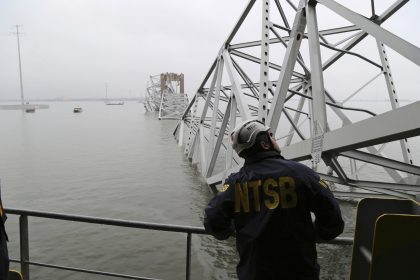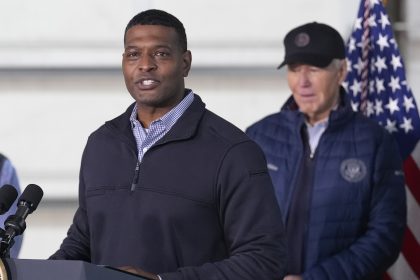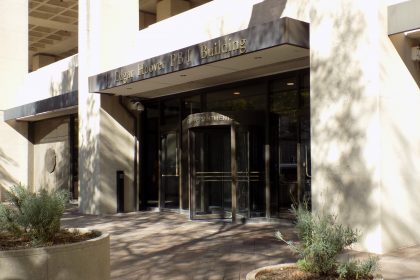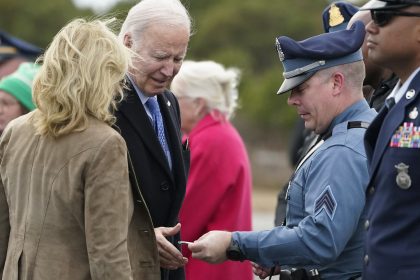House Leaders Unveil Framework for $760 Billion Infrastructure Plan
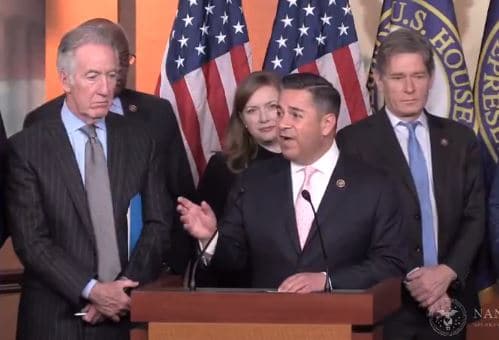
WASHINGTON – House Democratic Leaders unveiled a five-year, $760 billion framework for rebuilding the nation’s infrastructure, vowing to try to reach bipartisan consensus as the details are hashed out in committee.
The election-year package, billed as the “Moving Forward Framework,” was drafted by Rep. Peter DeFazio, D-Ore., chair of the House Transportation and Infrastructure Committee; Frank Pallone Jr., D-N.J., chair of the House Energy and Commerce Committee; and Richard Neal, D-Mass., chair of the House Ways and Means Committee.
“This is not just about fixing our roads and bridges,” the three said in a joint statement. “It is about seizing the opportunity to make transformational changes in communities of all sizes, in every corner of our country.”
The House thought it had a tentative deal with President Donald Trump on a $2 trillion infrastructure package last year, but talks broke down over disagreements on how to finance the deal and the then-ongoing House investigations into the president.
Those talks ended for good in May, when the president stormed out of a meeting with House Speaker Nancy Pelosi, House Majority Leader Steny Hoyer and Senate Minority Leader Chuck Schumer.
On Wednesday, House Democrats renewed their call for bipartisan talks with the White House and the Republican-led Senate. They appeared to be pinning their hopes on the fact a $1 trillion infrastructure plan remains one of Trump’s unfulfilled promises from his inaugural campaign.
“Infrastructure has been near the top of everybody’s list — the president’s, Congress, the public — and this will show that we can put in place that we’re pushing forward on a 21st century infrastructure proposal,” DeFazio said.
But there’s little sign the White House is ready to talk. Later on Wednesday, the president held a signing ceremony for the United States-Mexico-Canada Agreement, and did not invite either Speaker Pelosi or Rep. Neal to attend.
If bipartisan talks can’t be achieved, the House leaders made clear they intend to pass a series of bills on their infrastructure priorities.
The framework includes $329 billion for investment in enhanced transportation systems that will encourage use by bicyclists and pedestrians; $105 billion for transit agencies and maintenance needs; $86 billion for the expansion of broadband access; $55 billion in railway investments aimed at expanding the nation’s passenger services and improving aging Amtrak stations; and $19.7 billion for port maintenance.
An additional $21.4 billion is included to ensure communities have clean, toxin-free drinking water.
The Senate has begun work on its own infrastructure legislation, with one highway bill passing unanimously out of the Senate Environment and Public Works Committee this session.
That bill authorizes $287 billion over five years, and includes provisions for road safety and programs to maintain and repair roads and bridges.
Following Wednesday’s press conference, Reps. Joe Cunningham, D-S.C., and Mikie Sherrill, D-N.J., co-chairs of the Blue Dog Task Force on Infrastructure and Job Creation, issued a joint statement in which they said, “repairing our nation’s crumbling infrastructure is a bipartisan priority.”
“Our constituents sent us to Congress to address this critical issue, from building the Gateway Tunnel in New Jersey to mitigating coastal flooding in the Lowcountry,” they said.” That’s why the Blue Dogs were the first Democratic caucus to call for the prioritization of infrastructure this Congress. The Democratic framework presents an opportunity for both parties to come together to create good-paying jobs in communities across the country and improve the lives of everyday Americans. It is a strong first step in the negotiation process, and our hope is that both parties work together to get this done as soon as possible.”


















